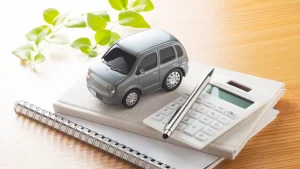Income Tax For Newcomers, Take Two – Filing Your Taxes
If you read the first part, you already know that not only do you possibly owe taxes, but you have some relief and allowances to look forward to. This guide is going to cover how much income tax you actually have to pay, and how it’s calculated.
In order to figure out how much you owe, you have to figure out what your taxable income really is. This is done by taking your income and subtracting out all of your expenses and tax-free allowances. That number that remains is going to be your taxable income. So let’s say that you are left with a taxable income of 50,000 GBP. That would put you in the 40% tax band.
You should also keep in mind that hit is for non-savings income. You will need to make sure that you’re looking up all of your taxable income by group — so you will want to look at the tax band for savings income as well as dividends.
Now that you know this, we can move on to the next step: actually paying the income tax.
It’s all handled through HM Revenue & Customs (HMRC), which is where you will send your tax money to. There are some different situations that call for different ways to pay your income tax.
If you’re working as an employee, you’re actually in luck — your employer will deduct your income tax for you through your wages. They’ll send the deductions back to HMRC on your behalf. If you get a pension, the provider will do the same thing — deduct what’s owed and send you the rest.
This is referred to as Pay As You Earn (PAYE).
If you are self-employed, then you’ll actually need to register for Self Assessment and complete a Self-Assessment tax return. Thankfully, you can complete and file your return online or fill in a paper form. It’s actually better to file online because if you are owed money, you will get it back faster. If you owe money, you’ll immediately know how much you owe.
Self-employed people can pay their taxes in two installments, plus a balancing payment to make it less of a burden.
This is a great time to begin looking at your taxes and making sure that everything is in order. If you find that your taxes are too complicated, you really owe it to yourself to get in touch with a qualified tax preparer that can handle these things for you.


